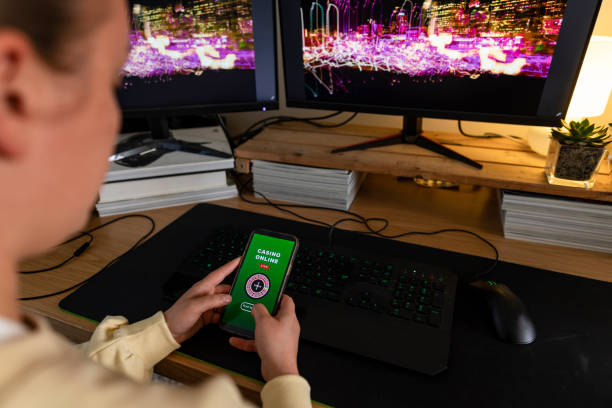
Top Online Casinos to Play At
If you’re on the hunt for a comprehensive list of the best online casinos, then look no further. Your quest for top-rated online gambling platforms with exceptional game selections, secure environments, and generous bonuses ends right here.
Explore the world’s top 7 online casinos, acclaimed for their extensive game offerings, robust security, generous bonuses, exciting promotions, and much more!


Introducing the Top Casinos for 2024
If you’re new to online casinos, you’ve found the perfect place. On this page, you’ll discover what to consider when selecting the best online casino.
Players join online gambling sites primarily to play casino games, so if a casino lacks a substantial game library, it risks losing players to competitors. A diverse game selection is crucial to the success of any online casino, and the top sites offer a comprehensive portfolio of casino games to their players.


Casino Hot Games
For those looking for the most popular and exciting options, Casino Hot Games are a must-try. These games are the current favorites among players, offering high entertainment value, engaging gameplay, and the potential for significant payouts. Don’t miss out on these trending games that are setting the casino world on fire!

Instant Win
Casino Instant Win games offer a thrilling and immediate gambling experience for players seeking quick results and instant gratification. These games, which include scratch cards, instant lotteries, and rapid-play slots, provide the excitement of potentially winning big in a matter of seconds.

Popular
Additionally, certain promotional offers, bonus features, or payment methods may be labeled as “popular” if they are widely utilized and appreciated by casino patrons. Essentially, anything labeled as “popular in casino” signifies that it is widely recognized, enjoyed, or utilized within the casino gaming community.
New Live casino bonuses
Casino rewards and promotions are effective in retaining players on their preferred platform. Where can you access exclusive casino rewards? Look no further!

Best from Online Casinos
We gather information about newly emerging online casinos to assist players in finding the most recent established online gambling platforms available on the web.

Explore the finest online casinos for authentic monetary gaming experiences.
Our commitment is to assist you in locating the premier online casinos for your gaming endeavors.
Our team of professionals has meticulously assessed numerous websites to present you with the most trustworthy online casinos available. Our recommended sites provide substantial bonuses, top-notch games, efficient banking options, and a plethora of other desirable features. Additionally, we offer an extensive guide that comprehensively outlines the advantages and disadvantages of online gaming, our rigorous evaluation process, and the key factors to consider when selecting a casino.

Enjoy gaming at the premier online casinos.
With online casinos, players have access to the latest card games and their preferred casino offerings from any location. Whether players are seeking to win real money or simply indulge in free online gaming, it’s crucial to locate a secure online casino.
That’s why our team of experts has identified the most reliable online casinos players can rely on, along with the finest casino games and bonuses obtainable. Utilize our suggestions below to uncover new online gambling platforms to enjoy your favored casino games, or to explore exciting new titles.




















